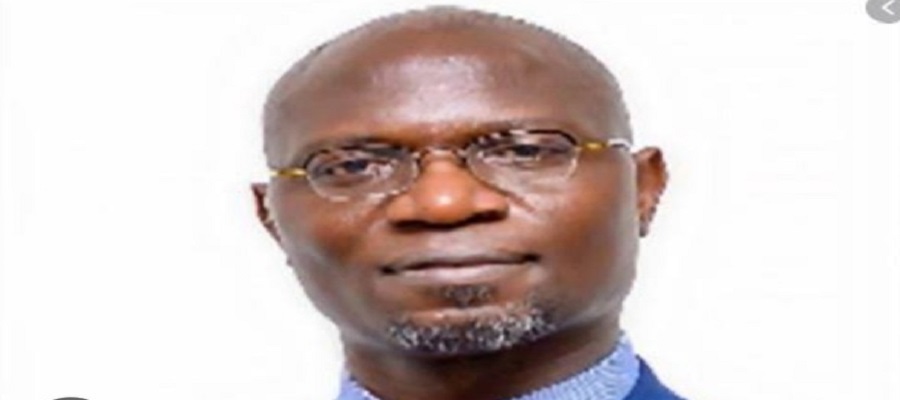Enza Raises $6.75m Seed Funding to Boost Embedded Payment Solutions Across Africa
Published
16 hours ago
on
March 25, 2025

Oliver Alawuba, group managing director/chief executive officer, UBA,
United Bank for Africa (UBA) Plc has released its audited financial results for the full year ended December 31, 2024, with all major indicators witnessing significant improvement.

The bank’s profit after tax rose by 26.14 per cent to ₦766.6 billion, up from ₦607.7 billion recorded at the end of the 2023 fiscal year.
UBA’s gross earnings also grew significantly from ₦2.08 trillion recorded at the end of the 2023 financial year to ₦3.19 trillion in the period under consideration, representing a 53.6 per cent growth.
The bank’s total assets rose remarkably by 46.8 per cent, from ₦20.65 trillion in 2023, to close at ₦30.4 trillion in December 2024.
Oliver Alawuba, group managing director/chief executive officer, UBA, said the bank’s performance demonstrated its focus on driving earnings growth, preserving asset quality, and expanding business operations.
The bank has proposed a final dividend of ₦3.00 kobo per share, bringing the total dividend for the year to ₦5.00.
The dividend is subject to shareholder approval at the upcoming Annual General Meeting.
UBA is one of the largest employers in the financial sector on the African continent, with 25,000 employees group-wide and serving over 45 million customers globally.
Published
2 days ago
on
March 24, 2025

Dr. Emomotimi Agama, director-general, SEC,
Securities and Exchange Commission (SEC) has reaffirmed its commitment to ensuring that only fit and proper individuals are permitted to operate in Nigeria’s capital market to enhance investor protection.

Speaking in an interview in Abuja over the weekend, Dr. Emomotimi Agama, director-general, SEC, emphasized that market operators engaging in unscrupulous activities would not be allowed to go unpunished.
According to him, “It’s important that, as a form of self-regulation, they are aware beforehand that if you do what is not right, the SEC will bring you out to the wall to say that you do not have character, because the very ethics of regulating or of registering a securities market operator is in the principle of the fit and proper person’s test.
“A fit and proper person’s test means that you satisfy all of the requirements that have been laid down in the Investments and Securities Act 2007 and in other regulations that the SEC has brought out to make sure that this happens.
“Disclosures by public companies will be very, very essential making sure that the investor has enough information to make decisions. If information is not provided, then that will be against the rules and regulations of the SEC and indeed, the ISA. So clearly for us, it is getting people to understand that there is no hiding place anymore for anybody that has an intention to defraud Nigerians and to defraud anybody that is investing in this market.”
The SEC Director-General stated that investor protection is a fundamental principle for the Commission, as the Investments and Securities Act (ISA) 2007 clearly outlines the objectives of securities regulation in Nigeria, with investor protection and market development as its twin priorities.
He emphasized that for any market to thrive, investor protection must remain a top priority.
He further asserted that the SEC is committed to ensuring that all market participants understand the Commission’s sacred responsibility, stressing that the SEC’s leadership, entrusted with this duty by President Bola Ahmed Tinubu, will carry it out effectively.
“It is important to state clearly that every investor in Nigeria is under the cover of the SEC as long as the person operates within the Nigerian capital market. And so the year 2025 is a year where we say that there is zero tolerance for any activity that does not fall within the laws of the Investments and Securities Act 2007.
“We are excited that the National Assembly has passed the new Investment and Securities Act and we are earnestly waiting for the President’s assent as the Bill is going through an administrative process to get to the President, to get it assented to.
“And that alone also signifies our intention to make sure that everyone that is investing in this market, or intends to invest in this market has a cover. That cover runs across so many lines, particularly, let me mention that Ponzi schemes will no longer be a place where people will be factoring, where people will be interested in, because the penalties in the new ISA you know, towards people that are engaged in Ponzi scheme is stiff enough to deter them.”
Published
2 days ago
on
March 24, 2025

Following the loss of revenues and underreporting of taxes for the development of Nigeria, the Chartered Institute of Taxation of Nigeria (CITN) has introduced the use of artificial intelligence (AI) in tax administration.

In his keynote address at a maiden ICT summit on taxation in Abuja, the pioneer Director General of the National Space Research and Development Agency (NARSDA) and senator of the Federal Republic of Nigeria, Professor Robert Ajayi Boroffice, said that AI-driven tax compliance systems analyse vast amounts of tax data in real-time, identifying inconsistencies, fraudulent activities, and underreporting. By using machine learning, AI can detect tax fraud and evasion patterns more accurately than traditional audits.
“Countries like the United States (IRS AI system) and the UK (HMRC AI-driven audits) are already leveraging AI to increase compliance and detect tax fraud more efficiently.
“Taxation is not just about revenue collection; it is a fundamental pillar of economic governance. A well-designed tax system fosters business confidence, encourages compliance, and ensures that governments have the necessary resources to invest in infrastructure, healthcare, education, and public services.
“We are living in an era where technology is not just an enabler but a driving force reshaping industries, governments, and economies. In fact, technology defines the power of a nation. Robotics and AI have already revolutionised healthcare, finance, and manufacturing, and now, they are redefining tax administration making it more efficient, transparent, and fraud-resistant.
“In the digital age, leveraging technology to build a smart, efficient, and fair tax system is no longer optional—it is imperative,” he said.
Before he declared the workshop open, the President/Chairman of Council, Mr. Samuel Agbeluyi, noted that technology is no longer a luxury; it is a necessity.
According to him, countries that have embraced digital tax reforms are reaping the benefits of increased revenue mobilisation, reduced tax evasion, and improved ease of doing business. Nigeria, he said, cannot afford to be left behind.
“Traditional tax administration is faced with a number of challenges. For decades, tax administration has relied on manual processes, paperwork-heavy systems, and traditional audits. These methods have posed significant challenges, including tax evasion and fraud. Slow and inefficient processes, high administrative costs, limited data insights,” he said.
He stated that there is a need for a smart tax infrastructure.









